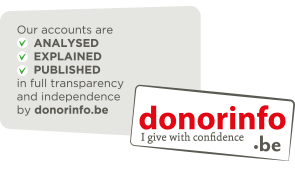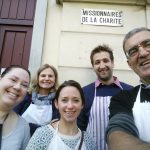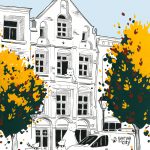A s a volunteer, it’s easy to separate yourself from the people you serve. It’s easy to think of yourself, even if it’s unconscious, as being in a very different position in your life. Sure, I have food in my cupboard, clothes in my closet, and a warm bed to sleep in. This is undeniably different than the situation of my friends sleeping in the park. But something else has become quite clear with the passing weeks. I am constantly reminded of the many similarities we share. We can more successfully cope with the reality when we view them as “refugees” and not individuals. Let’s face it, the truth is painful and hard to digest. Incredibly, though these young men are living it everyday- not just watching the story on the news- they are operating with a strength and resiliency I have never known. These guys aren’t just people needing a hot meal or a coat. They are people in the midst of a crisis- brothers, sons, and friends- working their way towards a better life.
This week I met a Sudanese teacher who had just arrived in Brussels. He left behind his wife and twin daughters. I complemented him on his perfect English. He said, “I teach English so it better be good!” He was tall, confident, with a broad and tender smile. I spoke with him about how he had decided to make the move to reach England and how his wife had felt about it. He told me they discussed it for a couple of months before deciding it was the only way. They want a better life for their little girls. I thought about his wife and children, imagining their faces. What were they really like? How strong his wife must be to stay in a dangerous place with their kids, hoping that her husband arrives to Europe safely and can eventually come back for them. He was jovial and friendly but I know he must have been uncomfortable. His jacket was dirty, a little too small, and not quite warm enough for the Brussels night. He asked me about my life and my family. He told me about some of the Sudanese customs and taught me to say a few phrases in Arabic. It was so clear that he was a teacher, and obviously a very good one. He told me he missed his students and the sunshine of back home.
“These guys aren’t just people needing a hot meal or a coat. They are people in the midst of a crisis- brothers, sons, and friends- working their way towards a better life.”
I came home that night to my family who were in town for a visit. I talked a little bit about my night. They asked why I was so somber. Their immediate concern was my safety while working with refugees. They feared some of them may be dangerous. It was hard not to get defensive but I tried to remember what the news reports repeatedly. Refugees are all one big group, lumped together, and often made out to be a threat. This is ridiculous of course, as most of them are simply trying to escape the atrocities of war, violence, and economic instability. I thought of the young men that I’ve talked and laughed with. I thought of their strong desire to connect and not be invisible. I like to think that telling these stories may offer an opportunity to think about the situation in a different way. Maybe, just maybe, they will carry my words with them.
As I sit here writing, I can envision the young men’s faces, hear their voices, and feel of the joy of seeing them. What a wonderful opportunity I’ve been given. I have the privilege of knowing them, of being with them at the most terrible time in their life, and offering a bit of relief, however small it may be.
-Amanda Adams, October 2016







